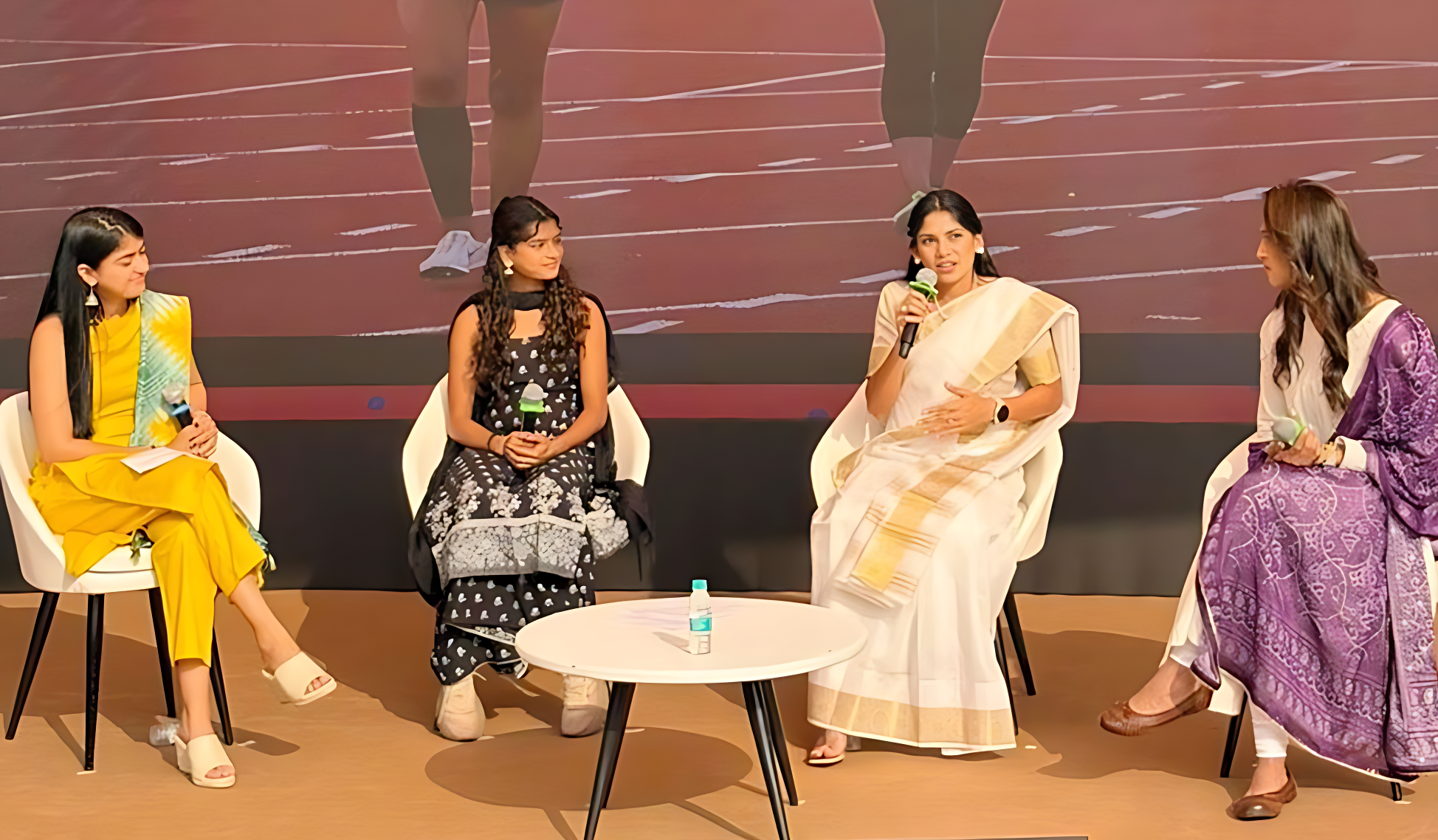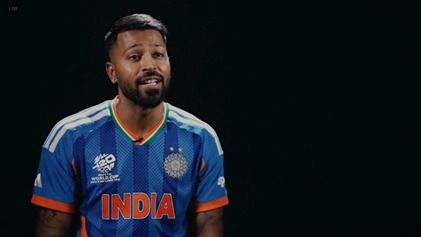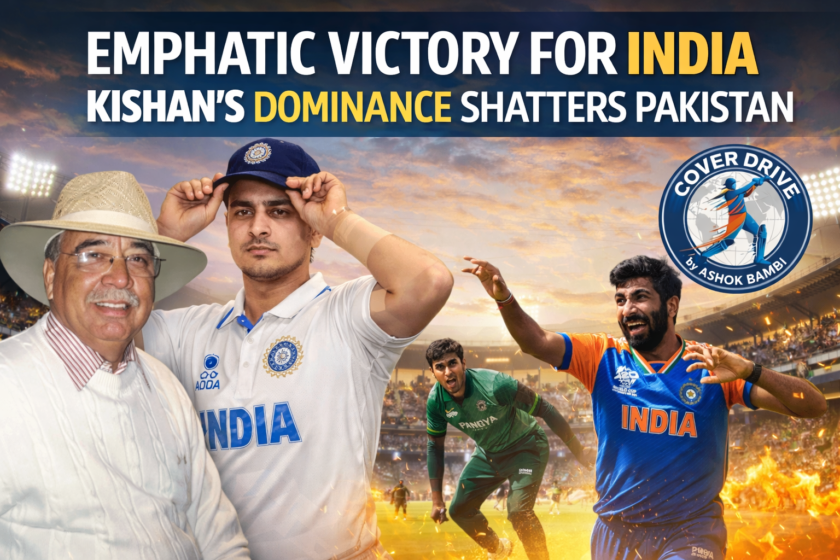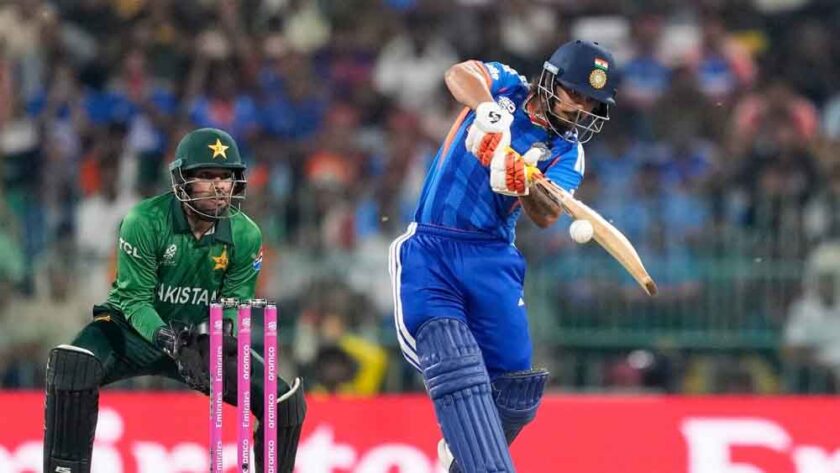New Delhi: The future of Indian athletics isn’t a distant prospect; it’s already taking shape on the track, in the gym, and in the minds of its youngest competitors. Session 4 of the Ekamra Sports Literature Festival offered a compelling conversation with three athletes at the beginning of their remarkable competitive journeys: Shourya Ambure, Poorva Sawant, and Bushra Khan. Anchored by Sports Psychologist Maithili Bhuptani, the session transcended technical details to become an intimate exploration of mindset, self-belief, and the unwavering work ethic that defines youthful promise. It gave the audience a real feel for what tomorrow’s champions are built on.
The Journey Begins: Trust and The Joy of Sport
The conversation started with Shourya Ambure, a 16-year-old hurdler who spoke with a maturity far beyond her years. She recounted her early struggles: winning school meets but finishing “dead last” in inter-school finals. Her breakthrough came from an unwavering relationship with her coach, Dr. Rajit Kulkarni.
Shourya Ambure: “He really told me to only have patience because performance… it’s not supposed to come in the early age groups… I trusted my coach and he definitely got me to where I am today. So I think all the credit goes to him.”
The emphasis on trust, patience, and long-term development immediately struck the psychologist.
Bushra Khan, an 11-year-old from a rural background, shared a simpler, yet profound, motivator. She started running for fun and the thrill of collecting medals. She spoke plainly: the initial push came from winning and seeing her efforts recognized.
For Poorva Sawant, a triple jumper, the motivation is pure love for the sport, not pressure:
Poorva Sawant: “I do not treat my sport as a career… I’m doing this just because I love it, and I honestly feel that one should do something that they love and only then they will get best results out of it.”
This collective focus on passion over pressure left the host impressed, highlighting the mental strength of this young generation.
Women in Sport: Running for a Dream
The discussion moved to the crucial topic of gender and representation in Indian sport, a subject Bushra had hinted at when she mentioned the importance of winning national medals.
Shourya Ambure delivered a powerful statement on gender neutrality:
Shourya Ambure: “I think not only in sports but each and every field should be gender neutral… I was brought up in a very supportive environment where I was taught that women are nothing less than men but stronger even… every time I step onto the track, I am not just running for myself but I am also running for every girl out there who can dream.”
Poorva Sawant echoed this sentiment, drawing on her experience in Mumbai:
Poorva Sawant: “I haven’t really faced anything like that [gender bias]… When I started my… selection trials in school, I was known because I used to beat the boys, and that is why I got into the team… there’s no limit to yourself when you [compete]; it’s just in your mind.”
This shared experience of being empowered, often by outperforming male peers in early stages, underscores a growing confidence and a supportive domestic environment, particularly in certain urban and familial contexts.
The Obstacles: Infrastructure, Injury, and Resilience
Despite their success and supportive families, the athletes face tangible, persistent challenges.
Shourya Ambure highlighted the gaping hole in basic infrastructure:
Shourya Ambure: “I live in Thane. So this might be a small problem, but there is no track in Thane… my coach… actually takes us three times in a week in his own car to Kopar which is one hour to two hours away… I wake up at 4:50 in the morning and I go to my coach’s house… that might be the only obstacle I’m facing currently.”

This story of a top athlete lacking a local training facility demonstrates the resilience that Maithili noted is characteristic of Indian athletes.
Poorva Sawant spoke passionately about the mental and physical toll of injuries:
Poorva Sawant: “That moment, it makes you feel helpless… instead of going for training you have to wake up and go to the hospital, go for rehab… That is very consuming… The worst part is when you’re lying in the bed and you’re just looking at other people go and train.”
She emphasized the role of the mind in recovery, citing her own experience of mentally rehearsing her “16 strides, hop, step, jump” technique while on bed rest. This allowed her to maintain muscle-brain memory even without physical training.
The Dual Path: Academics and Athletics
The panellists dismantled the myth that sports and academics cannot coexist at an elite level.
Poorva Sawant stressed the importance of a backup plan, noting the “fluctuating” nature of a career in sports, especially post-injury.
Poorva Sawant: “It’s a myth [that you can’t do both]. People abroad do it. Olympians do it. I am doing it… I feel like sports and academics they quite literally go hand in hand.”
Shourya Ambure offered a stunning personal example of this commitment:
Shourya Ambure: “I was in 10th standard this year… my history and geography paper were coinciding with the date of the trials… We decided to miss the two board exams… I went to Patna where the trials were. I won gold medal… and qualified for Asian Youth Championship… The ICSE board found out that I was representing my country, they allowed me to take a re-examination of the board exams… I came back and… I scored 90.4%.”
She credited education with helping her understand and perfectly execute the technical instructions from her coach, proving that an educated mind is crucial for technical events like hurdling.
A Message to the Future: The Role of Support
In closing, the athletes shared their message for the younger generation.
Bushra’s advice was simple: believe in yourself and see your journey through.
Poorva’s message was one of gratitude and conviction:
Poorva Sawant: “Everything’s in the mind… you should do what you love and you should love what you do… It’s not just because of you. It’s because of everyone who has supported you and just do not… never forget anyone’s efforts that they’ve put in.”
Shourya highlighted the recent success of Indian women in sports (seven out of nine medals won by girls in the Asian Youth Games contingent) and asked for equitable support.
Shourya Ambure: “I think the support that cricket gets, if athletics gets even like a little percent of it, I think we can produce not one but 10 Chopras if we get the same support, the same respect as cricket gets.”
The session concluded with the powerful realization that the future of Indian sport is in the right hands—hands that are versatile, ambitious, and responsible—but that the onus remains on the system (coaches, institutions, and society) to provide the necessary support to realize their dreams.









